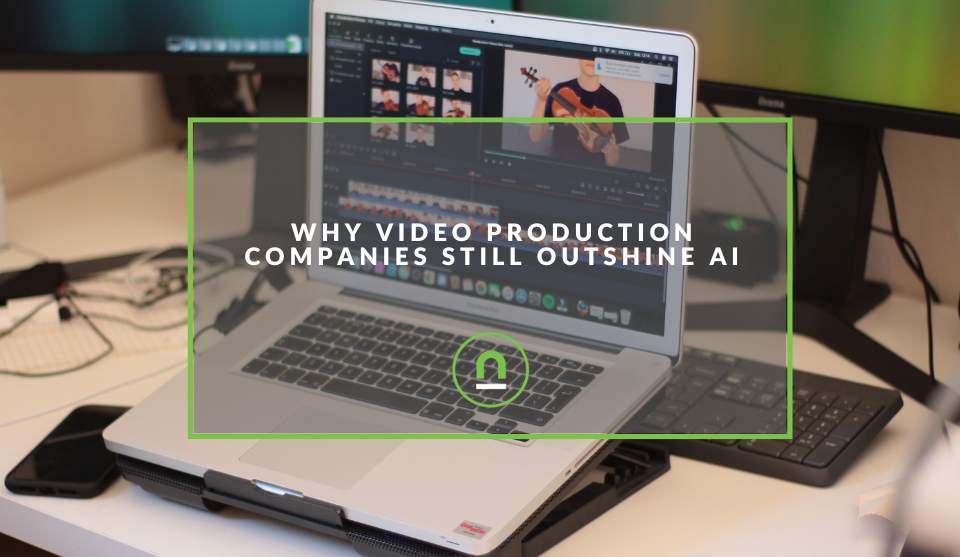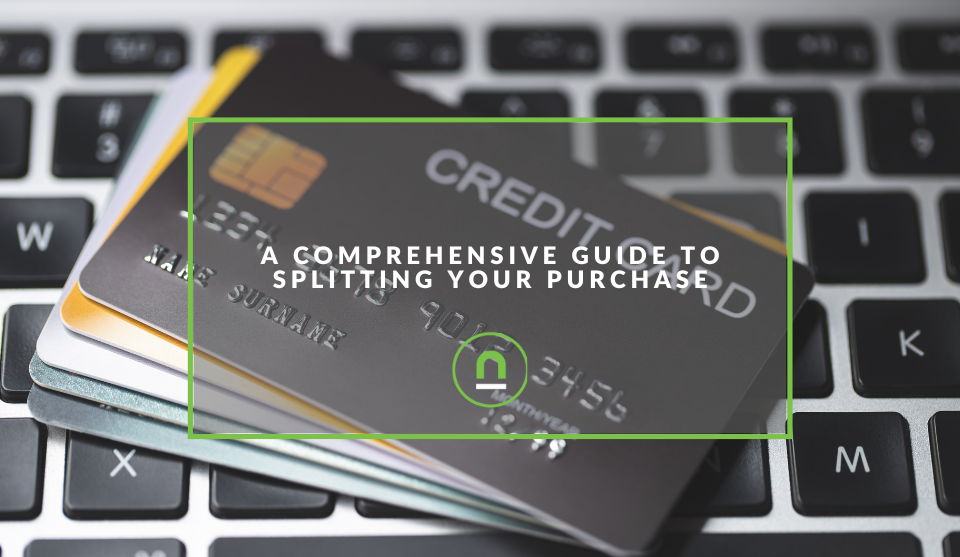Recent posts

Industry Experts
Common ASO Mistakes African App Developers Make
09 January 2026

Ace of Trades
The South African Industrial Tech Revolution
05 January 2026

nichemarket Advice
Why Video Production Companies Still Outshine AI
24 December 2025

Press Releases
Where You Can Find International Remote Jobs For South Africans
23 December 2025
Popular posts
Extravaganza
Trending Music Hashtags To Get Your Posts Noticed
24 August 2018
Geek Chic
How To Fix iPhone/iPad Only Charging In Certain Positions
05 July 2020
Extravaganza
Trending Wedding Hashtags To Get Your Posts Noticed
18 September 2018
Money Talks
How To Find Coupons & Vouchers Online In South Africa
28 March 2019
A Comprehensive Guide to Splitting Your Purchase
29 June 2024 | 0 comments | Posted by Che Kohler in Money Talks
As we face stagnant wages and higher inflation, many consumers are under pressure. This pressure forces them to delay certain purchases or give up on them altogether as they are priced out of the market.
Traditional wisdom dictates that you save for a purchase if you cannot afford it. However, saving means delaying consumption, and in this world of instant gratification, you will find someone or some company willing to help you finance that dream by pulling forward consumption through debt.
The world of finance offers a vast array of options for making purchases. When confronted with a price tag that exceeds your immediate spending budget, two popular choices emerged:
Buy now, pay later (BNPL) services and credit cards.
Both methods allow you to split your purchase into smaller payments, offering a sense of affordability and flexibility. But beneath the surface, significant differences exist that can significantly impact your financial well-being.
This comprehensive guide delves into the intricacies of BNPL and credit cards, equipping you with the knowledge to make informed decisions for your specific needs.
What is Buy Now, Pay Later (BNPL)?
BNPL services have exploded in popularity in recent years, particularly among younger generations. Their appeal lies in their perceived ease of use and the promise of interest-free financing.
Here's a closer look at how BNPL works:
- The Process: At checkout, you select the BNPL provider as your payment method. The BNPL service typically splits the purchase amount into smaller installments, often spread over 4-6 weeks. You make these payments directly to the BNPL provider.
- The Fees: While many BNPL services advertise interest-free financing, that usually comes with a caveat. As long as you make your scheduled payments on time, you won't incur any interest charges. However, missing a payment can trigger significant late fees that can quickly eat away at any savings from avoiding interest. Some BNPL services may also charge additional fees, such as account maintenance fees.
Benefits of Using BNPL:
- Interest-Free Financing (Potentially): If you're disciplined and can repay within the designated timeframe, BNPL offers a way to split your purchase without incurring interest charges.
- Easier Qualification: Obtaining BNPL approval is often easier compared to credit cards. Many BNPL providers conduct only soft credit checks, which have minimal impact on your credit score. This can be particularly beneficial for those with limited credit history or lower credit scores who might struggle to qualify for a credit card.
- Budgeting Tool: BNPL can be a helpful budgeting tool by breaking down your purchase into smaller, fixed payments. This can make it easier to track your spending and avoid exceeding your budget.
Drawbacks of Using BNPL:
- Hidden Costs: While advertised as interest-free, late payment fees associated with BNPL can be substantial. These fees can quickly negate any potential savings you might have gained by avoiding credit card interest.
- Limited Spending Power: Compared to credit cards, BNPL services typically offer lower spending limits. This might not be suitable for larger purchases.
- Credit Impact: Although some BNPL providers perform only soft credit checks, missed payments can be reported to credit bureaus, potentially damaging your credit score.
- Potential Debt Trap: The ease of using BNPL can lead to impulse purchases and overspending, especially for those who struggle with managing multiple financing options.
Qualifying for BNPL Services:
The specific requirements for qualifying for BNPL services can vary between providers.
Generally, you'll need to meet the following criteria:
- Age Requirement: You must be at least 18 or 21 years old (depending on the provider).
- Positive Credit History (Soft Check): Most BNPL services conduct soft credit checks, which don't affect your credit score. However, they may require a minimum credit score for approval.
- Ability to Repay: BNPL providers assess your ability to repay within the set timeframe. This might involve considering your income and existing debt obligations.
Popular BNPL Services:
Several BNPL providers have emerged in the market, each with its own terms and conditions.
Here are some of the most popular options:
- Afterpay
- Klarna
- Affirm
- Zip (formerly Quadpay)
- PayPal Credit
Why has BNPL become so popular?
BNPL offers customers a way to spread the cost of large purchases, making them easier to manage. It tends to play into unit bias by selling customers a smaller payment they think is manageable each month versus the large one-time payment.
For merchants, it offers an appealing payment method that leads to markedly higher purchase rates and order values. In many cases, the merchant gets the payment upfront while the BNPL company bears the burden of acquiring the debt.
The global BNPL market has already reached close to $1 trillion and shows no sign of slowing down; in fact, some predict it is poised for an exponential growth curve.
*The global buy now pay later market size was estimated at $750B in 2022 and expected to hit around $9.2T by 2032 ~ that’s a compounded annual growth rate (CAGR) of 29% during the forecast period 2023-2032
— Adem Tumerkan (@RadicalAdem) November 26, 2023
A more than a 10x rise in BNPL market size over next decade (estimated) pic.twitter.com/Ynae8hO12R
Credit Cards: A Traditional Financing Option
Credit cards have been a mainstay in personal finance for decades, despite many still fearing credit. While often seen as a less attractive option compared to the flashy allure of BNPL, credit cards offer unique advantages and disadvantages:
- The Process: When using a credit card for a purchase, you're essentially borrowing money from the issuer. You have a grace period (typically 21-30 days) to pay off the balance in full to avoid interest charges. If you don't pay the balance in full by the due date, interest starts accruing on the remaining amount.
- The Fees: Credit cards typically have annual fees, which can vary depending on the card's rewards program and benefits. Additionally, late payment fees and cash advance fees can be quite high.
Benefits of Using Credit Cards:
- Wider Spending Power: Credit cards generally offer higher spending limits compared to BNPL services, making them suitable for larger purchases.
- Rewards and Benefits: Many credit cards offer rewards programs that incentivize responsible use. These rewards can come in the form of cashback, travel points, airline miles, or other benefits. Earning rewards can effectively offset the annual fee and potentially offer additional value for frequent shoppers or travelers.
- Building Credit: Using a credit card responsibly and making your payments on time is a great way to build a positive credit history. This can be beneficial for securing loans, mortgages, and other forms of credit in the future.
Drawbacks of Using Credit Cards:
- Interest Charges: Credit cards accrue interest on unpaid balances. These interest rates can be quite high, especially for cards with lower credit limits. Over time, interest charges can significantly increase the overall cost of your purchase.
- Stricter Approval: Qualifying for a credit card typically requires a good credit score. This can be a hurdle for those with limited credit history or lower credit scores.
- Temptation to Overspend: The ease of using credit cards can lead to overspending, especially if you're not disciplined about tracking your expenses and sticking to a budget. This can quickly snowball into significant debt.
Qualifying for Credit Cards:
Getting approved for a credit card depends on several factors, including:
- Minimum Age Requirement: You must be at least 18 years old (though some cards may have a higher age requirement).
- Credit Score: A good credit score (typically above 670) is generally required for most credit cards. The higher your credit score, the better the interest rates and rewards you'll qualify for.
- Income Verification: Credit card issuers may require verification of your income to assess your ability to repay the borrowed amount.
Choosing Between BNPL and Credit Cards: It Depends on Your Needs
The decision between BNPL and credit cards hinges on your specific financial situation and spending habits.
Here's a breakdown to guide you:
- For Smaller Purchases: If you're looking to split a smaller purchase into manageable payments without interest (assuming you pay on time), BNPL can be a suitable option. However, be mindful of potential late fees.
- For Building Credit: If you have good financial discipline and want to build a positive credit history, responsible credit card use can be highly beneficial. Look for cards with no annual fees for the first year to avoid upfront costs.
- For Rewards: Credit card rewards programs can offer significant value for frequent shoppers or travelers. If you can pay your balance in full each month to avoid interest charges, the rewards earned can outweigh the annual fee.
- For Avoiding Interest: If you know you can't pay off the purchase within the BNPL timeframe, a credit card with a 0% introductory APR period might be a better option (remember to pay it off before the introductory period ends to avoid high interest rates). However, strict credit card discipline is crucial here.
Considerations before you finance a purchase
- Read the Fine Print: Before using any BNPL service or credit card, thoroughly read the terms and conditions. Understand the interest rates, fees, and late payment penalties associated with each option.
- Track Your Expenses: Regardless of whether you choose BNPL or a credit card, responsible budgeting and expense tracking are essential. This will help you stay on top of your payments and avoid overspending.
- Pay Your Bills on Time: Both BNPL and credit cards impose late fees for missed payments. Make timely payments to avoid these charges and protect your credit score (in the case of credit cards).
Finance isn't free
Despite claims of interest-free duration on both BNPL and Credit Card financing, it's not a free lunch; the best way to secure your purchase will always be to pay for it in full in cash upfront, but we know that this is not the reality we all face.
It's hard to save, and large purchases require consistent saving, which delays the date when you can acquire something. There are certain purchases that you might not want to delay, like buying a major appliance such as a fridge or stove, since the cost of not having that appliance will negatively impact you.
However, if you're using credit to purchase luxury items, you're really setting yourself up for disaster. BNPL and credit cards each have their place in the financial toolbox, but like any tool, they can be misused and cause significant damage. Understanding the strengths and weaknesses of each option allows you to make informed decisions that align with your financial goals.
Remember, responsible spending habits and a focus on budgeting are essential for navigating the world of credit, regardless of your chosen method. By carefully considering your needs and circumstances, you can choose the financing option that best supports your financial journey.
Do you need financial help?
Find a financial advisor or financial consultant in your area
Get started with nichemarket
If you are a financial adviser and want more leads, why not list your business with nichemarket? Registering with nichemarket is easy; all you need to do is head over to our sign-up form and follow the instructions.
If you require a more detailed guide on creating your profile or listing, we highly recommend you check out the following articles.
Recommended reading
If you enjoyed this post and have the time to explore the rabbit hole further, we suggest you check out the following posts about improving your finances.
- How To Never Pay Full Price At South African Cinemas
- How To Find Local Freelance Work In South Africa
- Over 40 South African Tech Business Ideas That Require Little To No Capital
- How South Africans Can Save Money Each Month
Tags: Credit Cards, Financing
You might also like
The Rise Of Trading Platforms In South Africa
16 December 2025
Posted by Gabriela Pelayes in Money Talks
Discover how the rise of digital trading platforms in South Africa is reshaping commodity markets, boosting accessibility, efficiency, and the future...
Read moreWhy Video Production Companies Still Outshine AI
24 December 2025
Posted by Che Kohler in nichemarket Advice
A review of traditional video production versus generative AI videos and why businesses might be tempted to go the cheaper route, but it might cost y...
Read more{{comment.sUserName}}
{{comment.iDayLastEdit}} day ago
{{comment.iDayLastEdit}} days ago
 {{blogcategory.sCategoryName}}
{{blogcategory.sCategoryName}}

